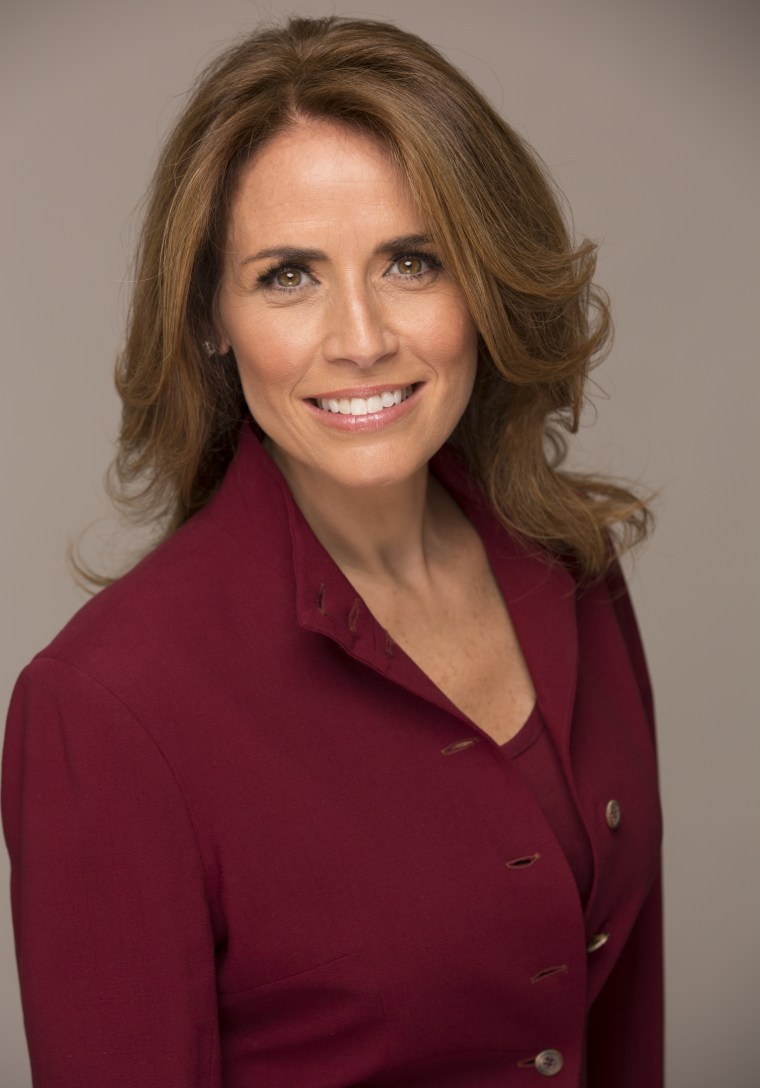As the CEO of a nonprofit that runs youth-wellness programs in 73,000 U.S. schools serving 38 million students, I’ve always prided myself on my understanding of the challenges of teachers. My team and I work with educators all across the country, many of them valued Program Advisors to our nutrition-and-physical-activity initiatives like “Fuel Up to Play 60.”
But as the parent of four public-school kids in a New York City suburb, all of whom are suddenly home with me during the coronavirus shutdown doing online learning, my already healthy respect for the work of teachers has skyrocketed. It is absolutely astonishing to me the unbelievable responsibility that these men and women are shouldering, especially in a time of crisis and unprecedented logistical hurdles.

Some of us may not have given it much thought, but when schools nationwide shut down two weeks ago, most educators’ job-descriptions changed in an instant. Literally overnight, Google Classroom, Google Hangout, and Zoom were the teaching platforms of choice, and teachers had to adapt lessons accordingly, whether they were ready or not. The whole nature of assignments changed (no quizzes or tests in which answers could be looked up online!). Teachers who were unfamiliar with online technologies had to scramble to train and catch up – which most did in record time.
Some teachers found themselves suddenly fielding phone calls, or were deluged with emails, from parents needing tech assistance to get their kids online. In the case of high schoolers, parents frantic about college applications, letters of recommendation, delayed SATs, and financial aid forms were trying to figure out next steps, and asking teachers for the answers. And guess what? Many of those teachers are online in the evenings helping with homework assignments.
RELATED: Coronavirus is canceling senior year across America: 5 ways to help your child cope
When you’re a parent of children ranging in age from 7 to 18 as I am, all working on their laptops at home, you see all this and more up-close. And what I see in my kids’ teachers is caring, attentive, and endlessly patient professionals who have no agenda but the education, achievement, and well-being of children. These professionals are a lifeline for a generation suddenly sidelined from school, and the courage and commitment they display both moves me and makes me angry.
Why angry? I cringe when I hear well-paid people bemoaning how teachers are underpaid, and hailing what “heroes” teachers are. I cringe not because it isn’t true – it is. I cringe because it can seem condescending and insincere, because, in truth, nothing ever seems to change. Despite our seeming appreciation of teachers, they remain underpaid, year after year, administration after administration.
I’m hoping we can use the current crisis to truly re-think, once and for all, the salaries of public-school teachers, and finally begin to pay them what they’re worth.
RELATED: Coronavirus: What public health workers are telling their children
Teacher pay in America is a huge issue and has been discussed in far greater detail than I can go into, or wish to, here. But “Know Your Value” readers might be interested to know that:
- Average U.S. teacher pay is now around $58,000 annually. Compared to their salaries, teachers spend an inordinate amount of their own money on their classrooms. Most estimates put the average annual teacher expenditure at around $500, with 10% spending more than $1,000. California teachers are said to average $674. But clearly, many are spending thousands. Adding insult to injury, new IRS rules say these expenditures are not deductible on teachers’ tax returns.
- Teachers in several states, including West Virginia, Kentucky, Oklahoma, Colorado, and Arizona, have recently staged walkouts to protest the low level of pay.
- More than 20 U.S. governors have called for teacher pay raises of up to 20%.
- Despite a 31% increase in men seeking classroom careers since 1980, the field has actually grown more female. Women in teaching have gone from 67% in 1980 to 76% today. Some researchers link this trend, shamefully, to the perceived lower status and salary of teaching in the U.S.
- Surprisingly to some, many teachers do not receive social security. Ten states and the District of Columbia exclude all teachers from Social Security.
RELATED: Mika's message to parents of teens during the coronavirus outbreak
In normal times, these facts are difficult enough to swallow. But when I see teachers going above and beyond, as they are these days, the situation seems untenable. And while I’m on my soapbox let me add school nutrition staff to the mix.
Fully 124,000 schools in the U.S. are now closed, most for the rest of the school year. During that shutdown, the 30 million U.S. children who depend on school breakfast and school lunch for a significant portion of their daily nutrition must be fed. School feeding during the shutdown has become a national emergency, yet as I write this it’s being efficiently managed by heroic school nutrition personnel and cafeteria workers in districts across America as we speak.
Some districts are delivering meals to bus-stops via school-bus routes (that’s why you still see school buses in your town during the shutdown). Others are doing grab-and-go pickup of meals from school parking lots, or are activating summer feeding sites. Still others are home-delivering a week’s worth of breakfasts and lunch at a time.
RELATED: On air and at home: How NBCU moms are juggling work, family while covering coronavirus
These people are doing nothing less than the equivalent of Red Cross-level crisis intervention, and, like teachers, are insultingly underpaid. As USA TODAY put it recently in an article entitled “Cafeteria Workers Risking Their Lives,” “For far too long, workers have not been recognized or adequately compensated for the vital role they play in feeding and caring for the nation’s children. The nation’s 420,000 cafeteria workers deserve to be able to support and protect themselves and their families during the COVID-19 pandemic and beyond.”
That article points out that the median hourly wage for these workers, who we regretfully sometimes refer to as “lunch ladies,” is $10.20 – and that “there are workers with years of on-the-job experience who still earn minimum wage.” And, in a final irony, these very workers have overnight been re-classified as “essential employees.”
I’ll stop there because I think I’ve made my point.
Once this crisis has passed, and it will, let’s see what we can do to make sure that every teacher and school nutrition professional in our great country “knows his or her value” – and is remunerated accordingly.
Alexis Glick is Chief Executive Officer of GENYOUth, a nonprofit organization dedicated to nurturing child health and wellness through programs presented in partnership with the National Football League and the National Dairy Council. Glick also serves as a frequent contributor to many national and international news programs, providing her perspective on global business topics of importance, the financial markets and CEO leadership trends. Glick is a frequent, strategic advisor to CEOs for some of the largest international, blue-chip and Fortune 500 companies on issues relating to media strategy, business development, investor relations and communications and advises professional athletes on social media, branding and public speaking.
